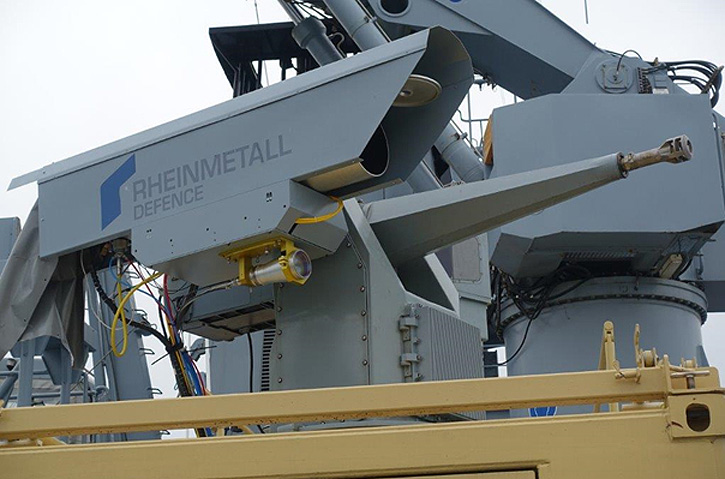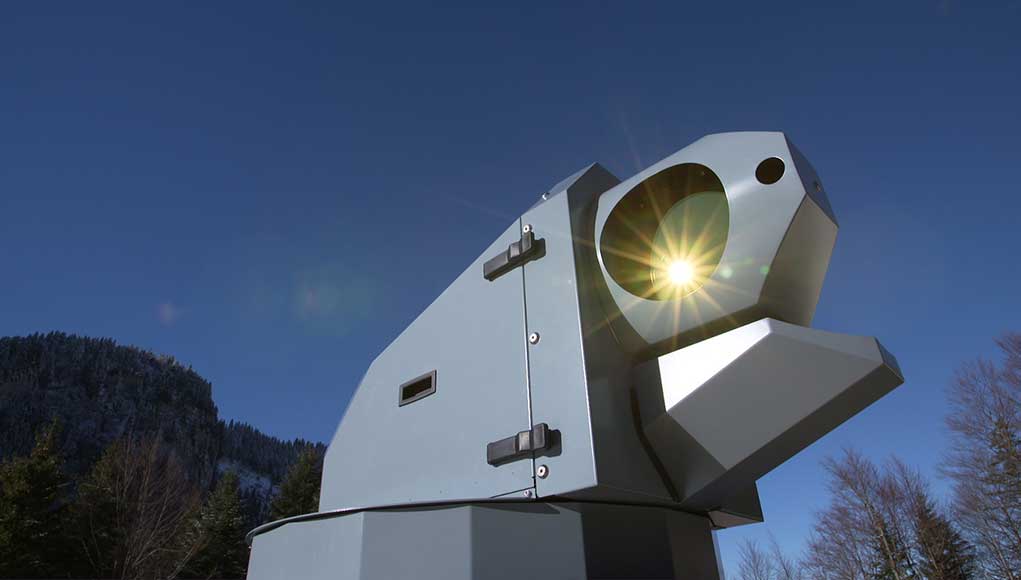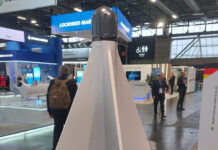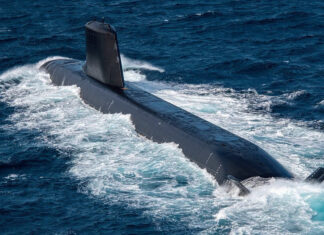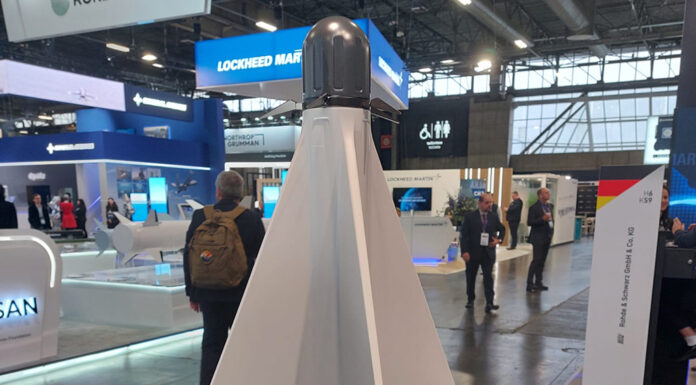Updated – 28/1/2021: The German procurement authorities have awarded Rheinmetall a contract to develop a key future laser weapon system component. At the end of the second quarter of 2020, the Federal Office for Bundeswehr Equipment, Information Technology and In-Service Support (BAAINBw) awarded a +10 € million contract to Rheinmetall Waffe Munition GmbH to fabricate a laser source demonstrator.
On 28 January 2021 BAAINBw expanded the contract to include MBDA under the ARGE consortium shared by Rheinmetall and MBDA. MBDA Deutschland is responsible for tracking, the operator’s console and linking the laser weapon demonstrator to the command-and-control system. Rheinmetall is in charge of the laser weapon station, the beam guiding system, cooling, and integration of the laser weapon system into the project container of the laser source demonstrator. The laser weapon demonstrator will be fabricated, tested, and integrated by the end of 2021. Trials onboard the German Navy frigate F-124 Sachsen will take place in 2022.
“Once it’s installed [on the ship], the demonstrator will also be used to test important aspects such as the interaction and function of the sensor suite, combat management system and effector as well as rules of engagement.” Doris Laarmann, head of laser business development at MBDA Deutschland said.
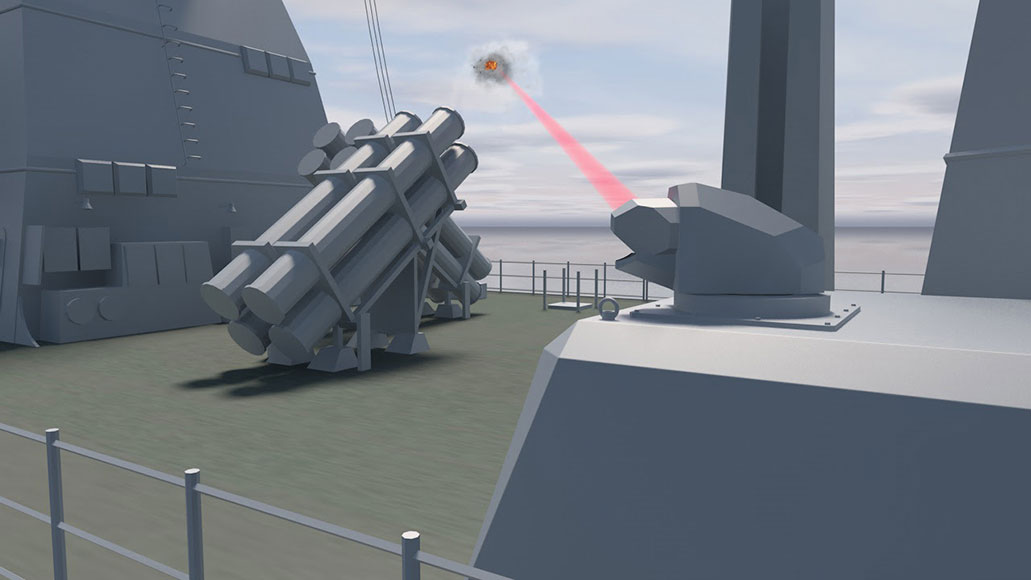
“The contract marks a systematic extension of the functional prototype laser weapon successfully tested in recent years, with the experience gained now dovetailing into one of the most ambitious projects in the field of laser weapon development in Europe” Dr. Markus Jung, who leads the company’s laser weapon development effort at Rheinmetall said
Several navies have already embarked on testing such weapons, The US Navy has recently tested one in the USA, and another is under development for a trial by the Royal navy. Laser weapons are considered mainly for defensive roles.
They are considered effective against soft targets such as drones and fast boats that could attack in swarms. Lasers also augment other defensive means in defeating simultaneous missile attacks.
The laser source demonstrator can be employed in various projects to study military applications of high power laser. The first project of the new laser will be a trial phase onboard the F219 Sachsen Class – the lead ship of this class, one of three air-defense frigates serving in the German Navy since 2003.
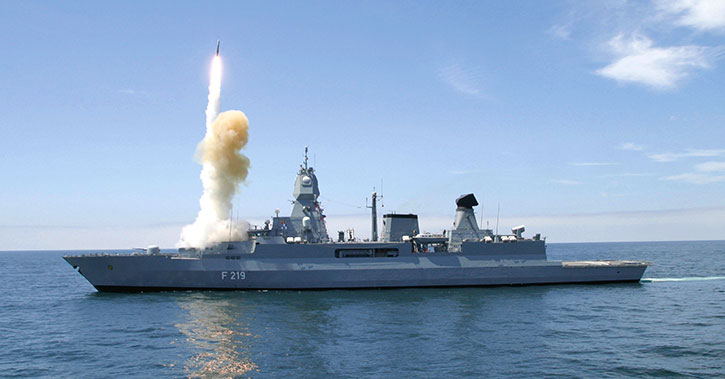
The laser demonstrator consists of twelve nearly identical 2kW fiber laser modules with close to diffraction-limited beam quality. A beam combiner – a subassembly that turns multiple beams into a single beam through dielectric grid technology – couples the twelve fiber-laser beams to form a single laser beam with excellent beam quality. The system utilizes Rheinmetall’s spectral coupling technique, which Rheinmetall has already tested for several years.
This coupling technique maintains excellent beam quality with scalable output power levels up to 20 kW. Spectral coupling technology offers a multitude of advantages compared with other (geometric) coupling technologies. It is less complex, highly modular, and features growth potential in the 100kW performance class.
In 2015, during trials conducted in the Baltic Sea, Rheinmetall successfully engaged targets on land with a functional prototype of a shipboard laser weapon system for the first time in Europe. Then, in 2018, BAAINBw and Rheinmetall successfully tested a laboratory-based 20kW laser source. The technology development was accelerated from laboratory to practical application in the space of just three years. The planned trials will be conducted in military environments under authentic operating conditions, becoming essential in maturing future laser weapon systems.
